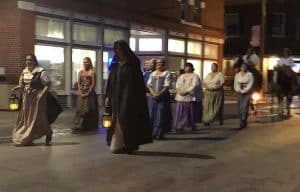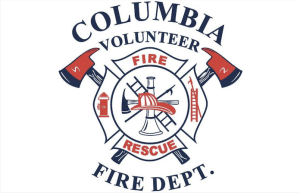Columbia balks at chickens
The Columbia City Council cried fowl at Monday’s meeting concerning the keeping of domestic chickens within city limits.
At the Sept. 21 meeting, Columbia Director of Community Development Scott Dunakey was asked to examine how the city might handle chickens at individual residences. After discussing the matter at Monday’s meeting, the council decided to not proceed with a possible ordinance allowing “backyard chickens.”
Dunakey described two methods of allowing chickens, either through permit or zoning, neither of which he believed would be a burden to enforce or implement.
After describing possible regulations, the aldermen discussed the idea, ultimately taking a straw poll to determine overall interest. Only two of the eight aldermen were in favor of proceeding with drafting an ordinance, leading Columbia Mayor Kevin Hutchinson to advise Dunakey to abandon the project.
Ward III Alderman Jeff Huch noted the reason for the issue being brought before the council was a resident who had been keeping chickens and that “in the short period of time they had (the chickens), every neighbor was opposed to it.”
With only Ward I Alderman James Agne Ward IV Alderman Steve Holtkamp and in favor of allowing domestic chickens in the city, no further action will be taken.
Hutchinson wondered whether action would need to be taken in order to have “an official no,” but he was advised that city code already addresses the issue and meeting minutes will reflect the council’s view.
The next item on Monday’s agenda continued a discussion about city video gambling regulations. Dunakey reviewed a draft of amended city code. The amendments would affect gambling language as well as business licenses and regulations.
A major change would eliminate the 50 percent income threshold currently in place. If the amendments pass, establishments with video gambling would no longer be restricted from gaining more than 50 percent of revenue from machines.
The other change slightly modifies liquor license requirements for businesses who also offer video gambling. The changes essentially clarify license classifications for on-premise alcohol consumption and sealed “to go” alcohol sales at such businesses. Gas stations and convenience stores will still be prohibited from having machines.
The amendments “will not change anything” for businesses from an operational perspective, Dunakey said, adding it is an “internal” and “administrative” action that removes the “artificial 50 percent cap” from the license.
The council will vote on these proposed changes at a future meeting.
Before the agenda items were introduced, it was announced the city had been the subject of an investigation by the office of the Illinois Attorney General for a “request of review” of an alleged violation of the Open Meetings Act regarding zoning amendments passed earlier in the year.
The act states that the public must be given advance notice of any meeting in which any “business of a public body is discussed or acted upon.”
There was a question of whether emails between aldermen and city officials seeking input on the zoning changes constituted a violation of the act.
Columbia City Administrator Doug Brimm said he responded to the Attorney General’s office inquiry and that the city was found to have acted in accordance with open meeting requirements.
Brimm reminded the council that when they respond to an email from city officials to not send a “reply all” email, as that could be construed as a violation of the Open Meeting Act.
During department reports, Columbia City Engineer Chris Smith informed the council that the Creekside Park project schedule would likely need to be revised.
The Illinois Department of Resources sent a letter advising that municipalities had requested extension of grant deadlines. The IDNR did not offer more time, but did provide options should the city have concerns about meeting grant deadline requirements due to COVID-related issues such as changing finances or supply chain delays.
“(The IDNR) has given us three options,” said Smith, explaining the city could continue as planned and hope to meet time requirements, abandon the project and relinquish grant funds that have already been received or modify the scope.
“I think it would be in our best interest if we take a step back, do a phased project,” said Smith, adding he wanted to avoid the need to pay back grant funds if part of the project was found to not meet all grant requirements.
He suggested focusing on a section of the park plan between Rueck Road to the GM&O Heritage Trail in the short term, as he believed it would have the most use by citizens.
“We have a project that’s good,” Smith said, noting they already have approval of plans from various involved agencies. “We may just have to implement it in pieces. Maybe that’s the responsible thing to do.”






